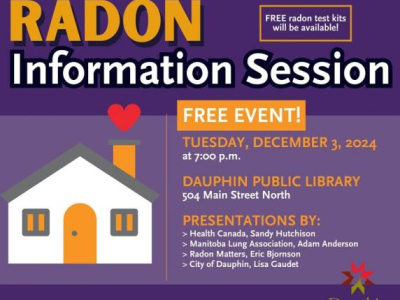 NewsNow
NewsNow
Manitoba Metis Federation members have voted to ban spotlighting. This does not include Night hunting, which will still be allowed, in remote and northern areas of Manitoba.
The MMF defines spotlighting as "chasing animals in motorized vehicles, including trucks, snowmobiles, ATVs, boats, etc. with artificial lighting."
A bright light is shone into the eyes of animals such as moose, elk and deer, causing the prey to stand still and therefore making it easier for them to be killed.
Spotlighting is illegal in many provinces, but legal for Indigenous people in Manitoba.
MMF president David Chartrand said the organization began consulting with Metis Manitobans about ending the practice because of saftey concerns, as well as racism towords the hunters. Spotlighting became a flashpoint of controversy after reports of spotlighting near farms.
MMF delegates voted to continue to allow night hunting — and even the use of artificial lights — under some circumstances.
The province will meet to create a map with precise definitions of where night hunting will and will not be allowed. He said the Duck Mountains and Porcupine Mountains are also possibilities.
First Nations Canadians have a right to hunt for food at night, a right protected by the Constitution Act of 1982, provided it is done safely and under certain conditions — such as on reserves, unoccupied Crown land or private land with permission.
In 2012, Manitoba and the Manitoba Metis Federation negotiated a harvesting agreement that further defined Metis' hunting rights.
The text of the resolution prohibiting night-hunting in southern Manitoba states, "this direction does not extinguish or give up the Metis right to harvest at night in any way; it simply puts Metis-created limitations on this aspect of our inherent right based on our collective decisions and self-government."
The Metis Laws of the Harvest are collectively decided and self-governed, which will allow the MMF to give punishments they feel are more appropriate than simple fines.
Adjudication procedures still need to be defined.
- Details
Last Tuesday, Clear Lake Country received the Marketing Excellence Award through Manitoba Tourism.
- Details
The three historic century-old buildings in Virden were a complete loss after a fire destroyed them yesterday morning.
- Details
Three new cases of PEDv have been found in the province.
- Details
This morning an accident on the Trans-Canada Highway claimed the life of a 70 year old man from Dauphin.
- Details
A Roblin business is celebrating 110 years of serving its community.
- Details
Today is Provincial Hunting Day.
- Details
Manitoba Infrastructure’s Hydrologic Forecasting Centre reports that forecast high winds starting this afternoon have resulted in a high wind warning effect for the southwest basin of Lake Winnipeg.
- Details
As September comes to an end and fall creeps in, temperatures are getting colder.
- Details
Repairs are complete on the RM of Dauphin Rural Water line break.
- Details
There is a shortage of at least 36 teachers across northern Manitoba First Nations forcing some band-operated schools to turn to non-certified teachers and educational assistants to run the classrooms.
Grand Chief Sheila North Wilson said the chronic problem is putting generations of First Nations students at a disadvantage.
Cross Lake First Nation, located 500 kilometres north of Winnipeg, began the school year short 10 teachers. Pauingassi First Nation, a fly-in community 300 kilometres northeast of Winnipeg, is short four teachers.
Education director Greg Halcrow has been able to hire seven teachers in recent weeks but three positions remain vacant.
Until the jobs are filled, educational assistants and retired substitute teachers are leading the classes.
One of the consequences is that First Nations are not able to offer competitive salaries to attract teachers.
Even with northern allowance, the salaries that are offered are between $15,000 and $20,000 lower than what teachers could make at a public school.
- Details






